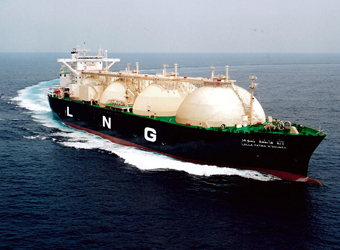Egypt is planning to import as many as 108 cargoes of liquefied natural gas (LNG) this year as the country prepares to start producing at two gas fields and move closer to its goal of self-sufficiency and even exports by 2019.
The North African nation will import 100 to 108 LNG shipments this year, including 43 to 45 cargoes in government-to-government contracts from Oman, Russia’s Rosneft and France’s Engie, according to a person familiar with the matter. The remaining imports will be arranged through a tender to be announced in November, said the person, who asked not to be identified because the information isn’t public.
Imports may be reduced in 2018 as BP’s North Alexandria concession works to start gas production in April and Eni’s giant Zohr field plans to produce by the end of the year, the person said. BP bought a 10% stake in Zohr from Eni last year, giving it access to the largest discovery in the Mediterranean Sea amid a regional race for offshore oil and gas deposits.
Egypt was a net exporter of LNG until 2014, when declining output and power shortages resulting from political upheaval forced the country to divert fuel for its own use and turned the most populous Arab nation into a net importer. Zohr, which Eni discovered last year, has an estimated reserve of about 850bn cubic metres of natural gas in place. The government expects the deposit to help ease Egypt’s energy shortage and allow it to resume exports.
Egypt started to export limited amounts of LNG from the Idku plant in September to keep equipment at the terminal running, and it plans to run the facility on the Mediterranean coast at full capacity for export in 2020 or 2021, the person familiar with the matter said.
Media officials at the oil ministry weren’t immediately available for comment.
Mohamed El-Masry, chairman of Egyptian Natural Gas Holding Co, said on Thursday that Egypt will start exporting gas in 2019. Egypt may announce new discoveries of the fuel by the second half of this year, Oil Minister Tarek El-Molla said on the same day.
Source: Bloomberg


